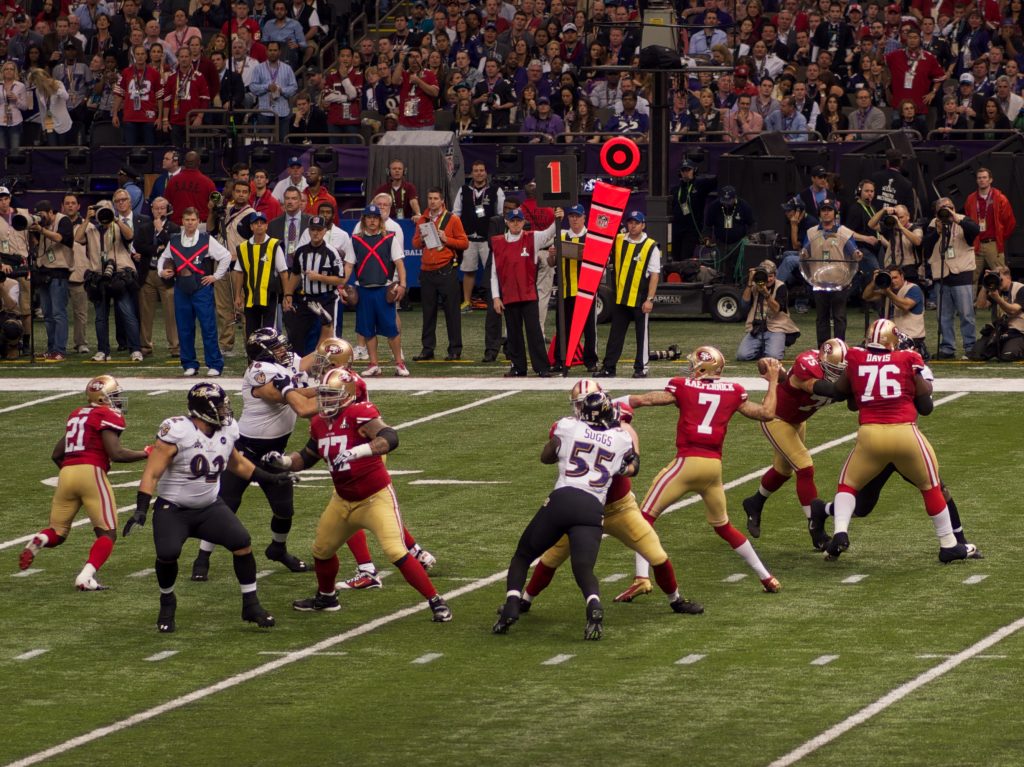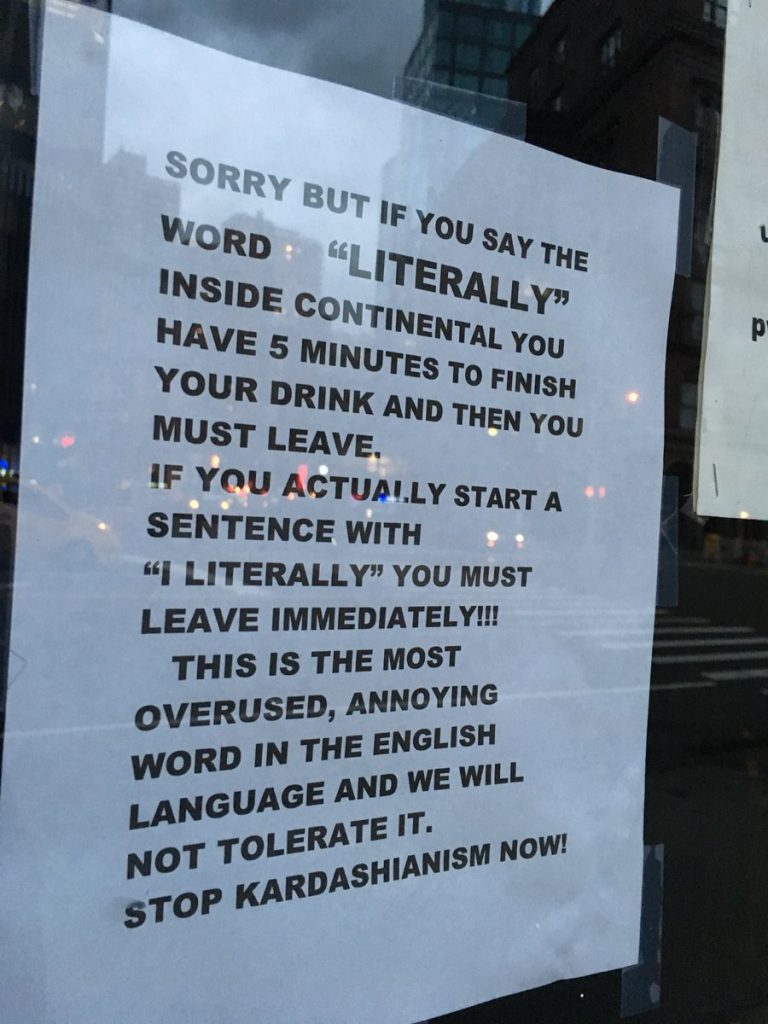“Stand well away from Platform 4. The approaching train is not SHEDuled to stop at this station.” So pronounces the Very British voice actor Celia Drummond, who happens to be the the voice of London’s Jubilee and Northern tube lines, as well as of some of the other British transport systems. But is this the “correct” pronunciation of the word schedule? Or do Americans come closer to the way the word was pronounced in its original language? Continue reading
Author Archives: Louise
A Super Bowl glossary
An A to Z of some of the Super Bowl’s more colorful slang and terminology. Continue reading
In the news: An NYC dive bar bans the word “literally”
“The owner of East Village dive bar Continental seems to have had enough: A prominent notice now hangs outside warning what will happen if customers let [the word literally] slip once inside: ‘You must leave.'” New York magazine’s “Grub Street” has the story.
***
“I have a dream …” — Martin Luther King, Jr.
“I am happy to join with you today in what will go down in history as the greatest demonstration for freedom in the history of our nation. Continue reading
“You said you wanted a smoking gun; how about a smoking proverb?”
That’s a line out of Manhunt: Unabomber, the gripping new(ish) TV series about how a notorious serial killer was tracked down and apprehended, largely thanks to the relatively young science known as “forensic linguistics.” If you want to know what forensic linguistics is all about, watch this series. (And read Glossophilia’s earlier post about another famous crime in which this particular form of detective work played an important role.) For a quick taster of the series, and to see how linguistics came into the crime in question, watch the video clip below to discover how a common proverb was the key to cracking the case of the Unabomber, Ted Kaczynski. Which proverb was it, and how did its history help the FBI to solve the case? Continue reading
To print or not to print: Presidential expletives
During a bipartisan meeting on immigration reform, President Trump reportedly asked lawmakers why “all these people from sh*thole countries” should be allowed to move to the United States. (He was referring, apparently, to Haiti and African countries.) Many news media outlets yesterday took to their keyboards and airwaves quoting him verbatim: the word “shithole” was suddenly seen and heard all over the world, even without the censoring asterisks in many cases. The New York Times reports on how the media is tackling this new peculiar challenge: the regular use of vulgarity and profanity by our nation’s leader in his public outbursts statements.
Here’s what the Associated Press’s style guide says about profanity: “AP Style holds that you should not use obscenities in stories unless they are part of direct quotations and there is a compelling reason for them.”
It seems there’s a good reason today.
***
In the news: “Youthquake” is word of the year, despite lack of tremors
Youthquake. Ever heard that word before? I hadn’t either, and neither had most of the world — including a lot of ‘youths’ who are supposed to be using it. Oxford Dictionaries declared youthquake 2017’s word of the year, even though a) it’s been around since the ’60s, and b) apparently no-one seems to use it much. … Continue reading
Poetry in Motion: “Dew” by Kay Ryan
Poetry in Motion: “Poem” by Charles Simic
Answers to yesterday’s quiz about country names
Here are the answers to yesterday’s quiz about country names. (There are 195 countries in the world, if you include the 193 members of the UN and two observer states. Of these 195 nations, there are 41 with more vowels* than consonants in their names. Here are four questions about those names.)
1. What is the longest country name of this type?
The longest country name with more vowels than consonants is Equatorial Guinea, with 16 letters. Coming a close second is Papua New Guinea, with 14.
2. What is the shortest country name of this type? (hint: there’s more than one)
There are five countries with five letters in their names, of which three are vowels. They are
Haiti, India, Nauru, Palau, and Samoa.
3. Which continent houses most of the countries with this name type?
Africa wins in this category, hands down, with 15 countries having vowel-dominated names. They are: Ageria, Cote d’Ivoire, Equatorial Guinea, Eritrea, Ethiopia, Guinea, Guinea-Bissau, Liberia, Mauritania, Mauritius, Namibia, Nigeria, Sierra Leone, Somalia, and Tunisia.
Europe comes second, with seven — or eight if you include Georgia in Europe.
4. Which letter of the alphabet starts most of these country names?
“A” and “E” tie here, with five country names each.
A starts Albania, Algeria, Armenia, Australia and Austria.
E starts Equador, Equatorial Guinea, Eritrea, Estonia and Ethiopia.
* y is not counted as a vowel for the purposes of this quiz







